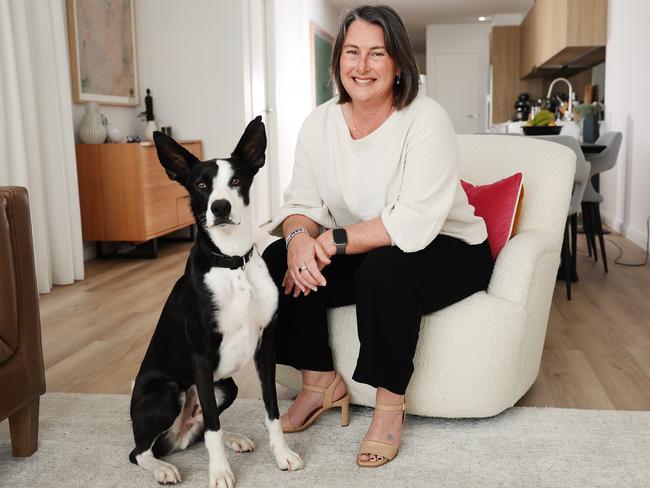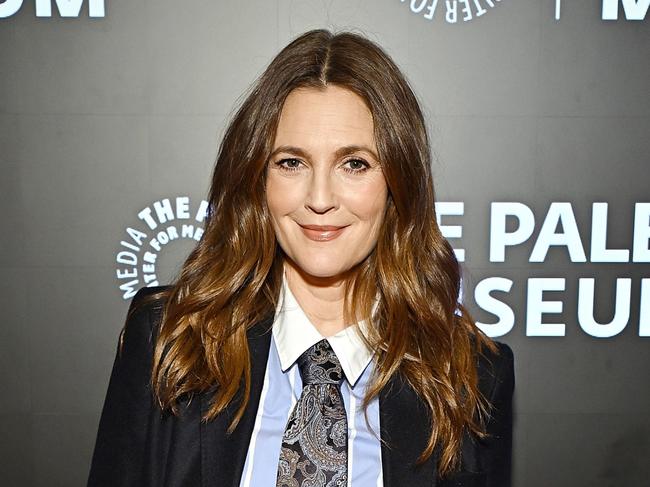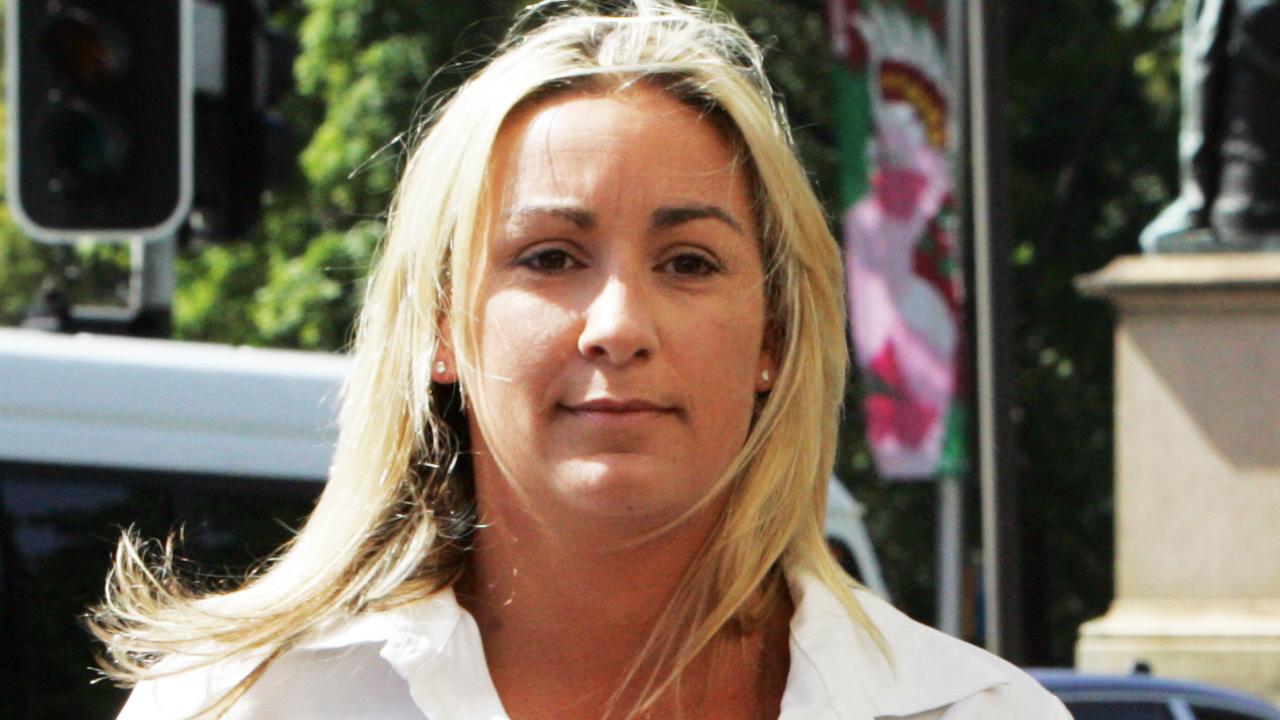Women urge GPs to get up to speed on menopause
Doctors must be financially incentivised to learn about menopause and end the silent suffering of thousands of women left feeling gaslit, advocates say, as celebrities share their own battles with the transition.

National
Don't miss out on the headlines from National. Followed categories will be added to My News.
EXCLUSIVE
Doctors must be financially incentivised to learn about menopause and end the silent suffering of thousands of women left without proper care and feeling gaslit or ignored due woefully under trained GPs, advocates say.
Australian women have shared their harrowing accounts of misdiagnosis, incorrect prescriptions and humiliating “medical misogyny” to a federal parliamentary inquiry into issues related perimenopause and menopause in the hopes of securing funding to address the “gap” in supports.
Doctors have conceded their training in the subject rarely stretches beyond a single lecture during undergraduate studies, while the knowledge “gap” among the general public is fuelling social stigma in the workplace.
Meanwhile unions are pushing for workers to be given access to up to 12 days of reproductive leave to cover a range of issues including menopause, but some doctors say better care would negate this need.
About 160,000 Australians enter menopause each year, with symptoms including vertigo, muscle and joint pain, memory lapses, sleep disorder, hot flashes, mood changes, headaches and difficulty concentrating.

Perimenopause can begin in some women in their 30s, but most often it starts between the ages of 40 to 44, while menopause occurs generally between 45 and 55 years.
When Sydney woman Sonya Lovell was 47-years-old she was told her breast cancer treatment would lead to medically induced menopause.
Unknown to her at the time, the hormonal fluctuations impacted her brain, but when Ms Lovell told her doctor she was “losing probably four words in a sentence” the GP did not make the connection.
“The GP said, ‘gosh, that’s something we’re going to have to keep an eye on’ and I thought, great so now I’ve just survived cancer and am I looking at early dementia?” she said.
“It was terrifying.”
Ms Lovell later became a menopause awareness advocate, and hopes one outcome of the inquiry will be a properly funded education campaign aimed not just at women, but also their employers, doctors and spouses.
She also wants a “standard health check” to be made available to all women over 35 with a specific higher Medicare rebate that GPs can only access if they undertake extra training in perimenopause and menopause.
“We really need to be incentivising and upskilling our GPs, but also putting in place a standardised health check,” she said.
Dr Ceri Cashell, a GP at Avalon Family Medical Practice, said medical students graduate with “very little understanding” about menopause, and most are unfamiliar how changes in estrogen, progesterone and testosterone affect women throughout their life.
“These hormones have a dramatic impact on every single part of our body, from our brain to our heart to our bones and skin,” she said.
Dr Cashell, who undertook additional training herself, said incentivising GPs to upskill in perimenopause and menopause was a critical step to improve women’s health, and would mean fewer even needed to take leave from work.
“Once doctors get that education they don’t look back, they all become converts because they see their patients doing so well,” she said.
“There’s a resolution of mood symptoms, insomnia, pain and these women really get their zest for life back.
“My patients they don’t need to be taking sick leave, because they get better.”

As not all workplaces can accommodate adjustments — like flexible start times — to manage symptoms, the Health Services Union wants 12 days of reproductive leave to cover not just menopause, but also things like IVF treatments, severe period pain and vasectomies.
HSU national senior assistant secretary Kate Marshall said all workers deserved the “critical” leave, which shouldn’t be left to being “lucky enough to have an understanding boss”.
“Women will be able to stay in the workforce longer, build more superannuation and help us close the gender pay gap,” she said.
The Australian Council of Trade Unions has pushed for 10 days of leave, which public sector workers in Queensland have been granted as of July this year.
The federal inquiry received hundreds of submissions and heard first-hand accounts from women who felt misunderstood or ignored when they sought medical support.

Multiple women reported being improperly prescribed hormone replacement therapy to manage their symptoms without also receiving a progesterone prescription to reduce the risk of developing uterine cancer.
Melbourne woman Sandy said when she asked her GP if she might be experiencing a symptom of menopause, the doctor replied “all I learnt at med school was that menopausal women were either mad or sad”.
“His lack of training in perimenopause and menopause means he is unable to treat a hundred per cent of his female patients once they reach this stage of life,” she said.
“This is a catastrophic failure.”
Brisbane woman Jennifer said when she suggested her insomnia might be due to perimenopause, her doctor dismissed the idea because she was “far too young”.
“I was 45 – that’s the prime perimenopausal age,” Jennifer said.
“(The GP) tried to convince me that this was just the stress of midlife, that my children are quite young, my husband travels for work and basically just to suck it up.
“I walked out her office scared, confused and with a prescription for a sleeping pill.”
Labor Senator Marielle Smith is the inquiry deputy chair and said she had heard “loudly and clearly” that “too many women aren’t getting the support they need” when they are seeking to understand their symptoms of menopause and perimenopause.
“We have heard many stories of women walking into their GP clinic and feeling like their experiences of pain or discomfort were ignored or dismissed,” she said.
Ms Smith said menopause was not an “optional part of ageing” and therefor medical professionals needed to be “adequately trained and properly informed” about the condition.
“Instead, we know that women are being forced to shop around – seeking out four or five doctors until they get the support they need,” she said.
“That’s not good for the primary health care system and it’s not good for women.”
CELEBRITIES REVEAL THEIR BATTLES
Naomi Watts

Watts started experiencing symptoms at 36.
“Mood swings, night sweats and migraines … I was feeling like I was spiralling out of control.
“I truly believe that if menopause hadn’t been such an off-limits topic when I first started experiencing symptoms, I would’ve had an easier transition.”
Michelle Obama

“I experienced the night sweats, even in my 30s.
“There is not a lot of conversation about menopause.
“I’m going through it, and I know all of my friends are going through it.
“And the information is sparse.”
Drew Barrymore

“I realised that I was in perimenopause when I started having my period every two weeks.
“One doctor also just told me this could last, in the worst case scenario, 10 years.
“And I was like, I will never make it 10 years like this.”
Pip Edwards

Edwards is now going through perimenopause.
“It needs to be normalised, so that I don’t feel like I’m f**king crazy. It is making me crazy.”
Oprah Winfrey

“For two years I didn’t sleep well. Never a full night. No peace.
“Restlessness and heart palpitations. I was 48 to 50.”
But “contained in (a book she discovered) was the answer I’d been going doctor to doctor trying to figure out.
“Until that point in my adult life, I don’t recall one serious conversation with another woman about what to expect.”





